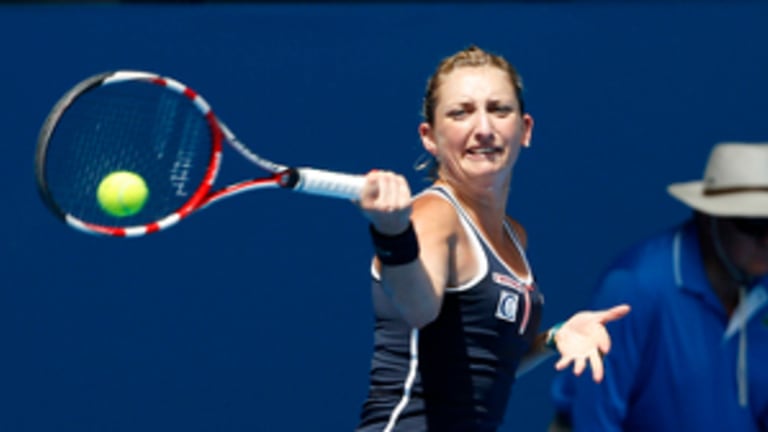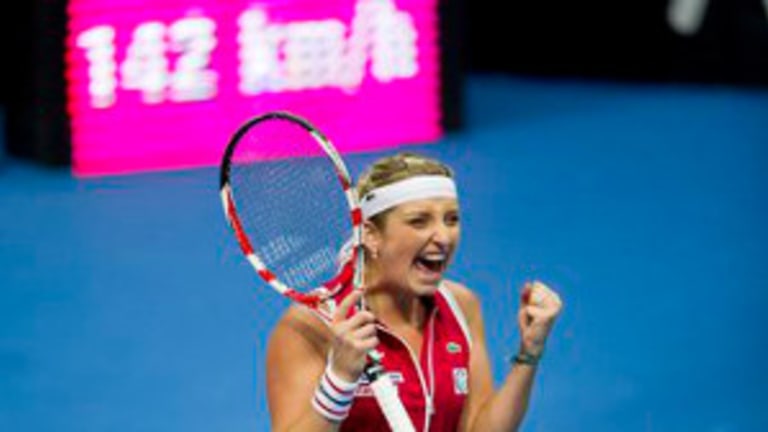INDIAN WELLS, Calif.—“How does he do that?” Timea Bacsinszky used to wonder years ago, as she watched her countryman Roger Federer win match after match after match while hardly seeming to break a sweat.
Bacsinszky still doesn’t know how the Maestro does his conducting, exactly. But she likes to think that, after this spring, she understands “like 10 percent” of what he felt on court when he was in his prime. The 25-year-old Lausanne native could be right. Coming into her match with Serena Williams here on Wednesday evening, Bacsinszky had won two tournaments and 15 straight matches of her own. Put those together with her runner-up appearance in Shenzhen in January, her tour-best 21-3 record, and her climb to a career-high No. 26, and Bacsinszky has to be the early favorite for the WTA’s most-improved player award. While she lost to Serena in straights (7-5, 6-3), she was in both sets until the end. Not bad for a player who, before this year, hadn’t reached the third round at a major since 2008.
As good as Bacsinszky was on court, though, what she brought to the interview room over the last week was even more compelling, as well as a little harrowing. The Swiss reporters who are here to see Federer talked to her after each of her first three matches, and it’s easy to see why. Bacsinszky can’t hide her feelings on the court, and she doesn’t hide her thoughts off it. Backing down doesn’t seem to be her style in general. On Monday, she talked about how much, in a previous match of theirs, she had enjoyed drop-shotting Serena twice in a row on Serena’s second serve. Bacsinszky got an even bigger kick when Serena came back at her in her patented fashion: with an ace and a icy stare.
“I remember I kind of laughed,” Bacsinszky said. “But I loved this. I loved this reality of trying to get control of the other [player].”
Serena seemed to get a kick out of Bacsinszky as well. “She told me I have to teach her the drop shots,” the Swiss said with a smile. “I said, ‘Well, you have to teach me the rest, then.’”

